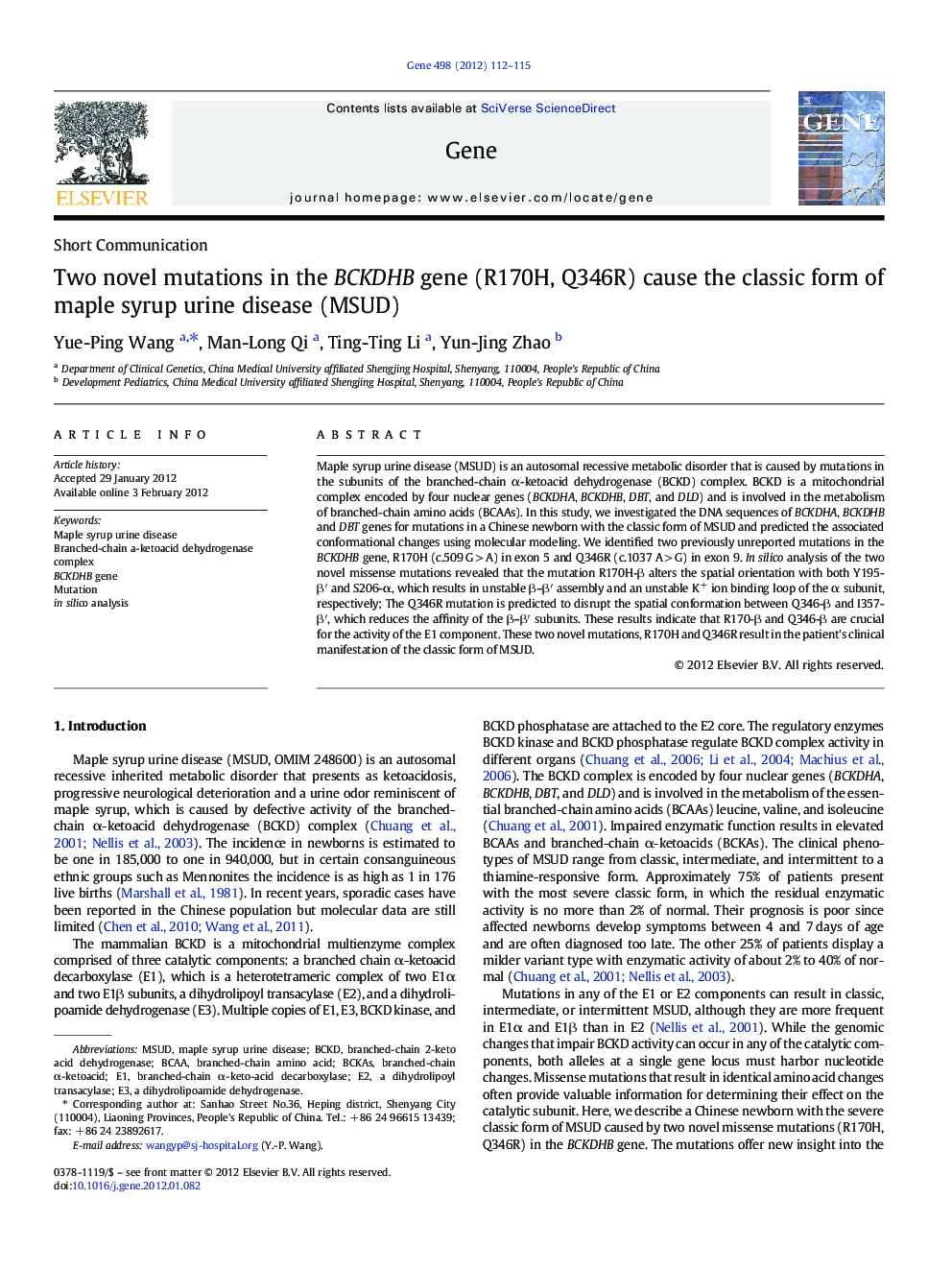| Article ID | Journal | Published Year | Pages | File Type |
|---|---|---|---|---|
| 2817958 | Gene | 2012 | 4 Pages |
Maple syrup urine disease (MSUD) is an autosomal recessive metabolic disorder that is caused by mutations in the subunits of the branched-chain α-ketoacid dehydrogenase (BCKD) complex. BCKD is a mitochondrial complex encoded by four nuclear genes (BCKDHA, BCKDHB, DBT, and DLD) and is involved in the metabolism of branched-chain amino acids (BCAAs). In this study, we investigated the DNA sequences of BCKDHA, BCKDHB and DBT genes for mutations in a Chinese newborn with the classic form of MSUD and predicted the associated conformational changes using molecular modeling. We identified two previously unreported mutations in the BCKDHB gene, R170H (c.509 G > A) in exon 5 and Q346R (c.1037 A > G) in exon 9. In silico analysis of the two novel missense mutations revealed that the mutation R170H-β alters the spatial orientation with both Y195-β′ and S206-α, which results in unstable β–β′ assembly and an unstable K+ ion binding loop of the α subunit, respectively; The Q346R mutation is predicted to disrupt the spatial conformation between Q346-β and I357-β′, which reduces the affinity of the β–β′ subunits. These results indicate that R170-β and Q346-β are crucial for the activity of the E1 component. These two novel mutations, R170H and Q346R result in the patient's clinical manifestation of the classic form of MSUD.
► We identified two novel mutations R170H and Q346R in the BCKDHB gene. ► In silico analysis revealed that two mutations destabilize β–β′ subunit assembly. ► It provided a simple and rapid method to predict the severity of MSUD.
